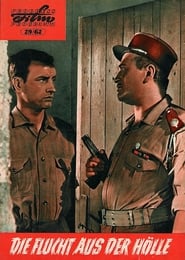detail profile martin fl c3 b6rchinger
Peran Yang Di Mainkan Martin Flörchinger
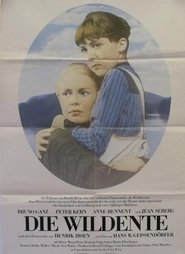 Consul Werle holds a reception in...
Consul Werle holds a reception in...The Wild Duck 1976
Consul Werle holds a reception in honour of the homecoming of his son Gregers. At the reception, Gregers meets his childhood friend, Hjalmar Ekdal, who is married to Gina, a former maid of the Werle family. Hjalmar is unaware that Werle had an affair with Gina and that their 14-year-old daughter Hedwig is not his child. Gregers moves in with the Ekdals with the intention of allowing unsuspecting Hjalmar and his family to share in the "happiness of truth". Hedwig is entirely devoted to a wild duck, which lives on a pond outside their house. When Hjalmar learns the truth about his daughter, he wants to leave his family. Gregers advises Hedwig to kill the wild duck so that her father, impressed by this sacrifice, will return home. On the following day, Hedwig's birthday, she doesn't shoot the duck, but shoots herself instead.
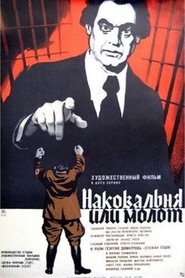 This is a political picture about...
This is a political picture about...Hammer or Anvil 1972
This is a political picture about the Bulgarian revolutionary Georgi Dimitrov. In 1933 during the Reichstag Fire Trial trumped-up charges of having set the Reichstag on fire were brought against him. At the trial Dimitrov exposed the machinations of the Nazis and turned from a defendant into an accuser. Central to the story is the face-to-face political duel between Dimitrov and Goering. Dimitrov's interactions with ordinary Germans, the memories of his wife Lyuba Ivoshevich, and the meetings with his mother Parashkeva alternate with documentary shooting scenes from the time of Nazi Germany.
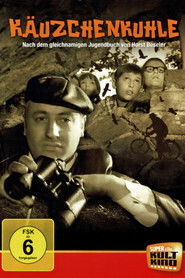 A young boy Jampoll is spending...
A young boy Jampoll is spending...Treasure on the Bottom of the Lake 1969
A young boy Jampoll is spending the summer in his grandfather village where he fights criminals using his friends help.
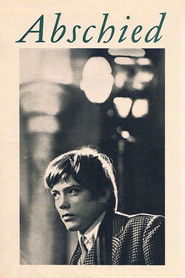 In August of 1914 amidst the public...
In August of 1914 amidst the public...Farewell 1968
In August of 1914, amidst the public ecstasy surrounding the impending war, Hans Gastl, the young son of a Munich bürger, makes a decision: he will not take part in this war. This resolution signifies a turning point in his life; a farewell to his class and his family.
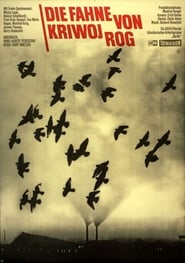 In an act of friendship and...
In an act of friendship and...The Banner of Krivoi Rog 1967
In an act of friendship and solidarity between two mining towns in 1929, the locals of Kriwoj Rog, Russia, give their flag as a gift to the locals of Bergstedt, Germany. This quickly takes on a symbolic meaning for the miners in Bergstedt as the Nazi party demands that this Soviet gesture be erased and the flag be replaced with their own. The miner and communist party functionary Otto Brosowski (Erwin Geschonneck) publicly declares it his duty to defend this flag against every danger, and he keeps his promise despite his family being threatened by torment and torture.
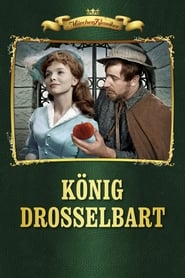 A fairytale about a beautiful but...
A fairytale about a beautiful but...King Thrushbeard 1965
A fairy-tale about a beautiful but very haughty princess Anna who cruelly mocks each of her suitors. Finally she is forced by the king to marry a beggar. The poor life, hard work and love teach the princess a lesson and turn her into a loving and kind person.
 After a breakdown Rita returns to...
After a breakdown Rita returns to...Divided Heaven 1964
After a breakdown, Rita returns to her childhood village in 1961. As she recovers, she remembers the past two years: her love for the chemist Manfred, ten years her senior; how his enthusiasm about his new chemical process turned to bitter disappointment in the face of official rejection; how he escaped to West Berlin a few weeks before the Wall was built and hoped that she would follow him …
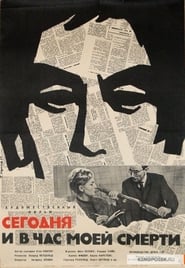 Ella Conradi a dedicated journalist from...
Ella Conradi a dedicated journalist from...Jetzt und in der Stunde meines Todes 1963
Ella Conradi, a dedicated journalist from Germany, is in Jerusalem to report about the trial against the Nazi criminal Eichmann. Disgusted by the monstrosities that are revealed, she eventually returns to Germany. There, she wants to cover common cases and trials again. Her first assignment is a murder trial against a man called Ralf Jordan who constantly maintains his innocence. Conradi, who believes Jordan and wants to help him, starts to investigate the case - and thus opens up a political can of worms. The backgrounds of the case reach back to the Nazi period and involve officials of the Third Reich, who in the meantime have returned to their powerful positions.
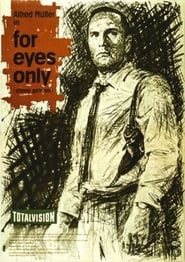 The Concordia trading company in Wrzburg...
The Concordia trading company in Wrzburg...For Eyes Only 1963
The "Concordia" trading company in Würzburg is a secret headquarters of the MID, a secret service agency of the US Army. For years, espionage, sabotage, and diversion operations originated from here in order to undermine the Socialist Republic of Germany. A favorable moment for a military attack approaches and plans are developed. These plans are placed in the hands of Major Collins, who keeps them in a safe. Hansen has worked for him for many years, but also for the Stasi as a double agent. Security Chief Colonel Rock knows there is a leak, but Hansen has passed every test thrown at him. He is trying to deal with his current assignment: acquiring the plans so they can be made public. His mission is to get them out of the safe and into the GDR without getting caught.
 The film tells the love story...
The film tells the love story...Verwirrung der Liebe 1959
The film tells the love story of two young couples. According to their social ranks, construction worker Edy is dating employee Siegi, while medical student Dieter is dating art school student Sonja. Rather unintentionally, they exchange partners. During a carnival ball, Dieter makes out with Siegi because he falls for her her fresh and happy girlish manner. Sonja coolly observes this game and sees this intermezzo as a test for their relationship. While Siegi and Dieter vacation at the sea, Sonja falls in love with Edy. Now the die seems to be cast for new constellations. But when both couples stand in front of the registrar’s office, they finally come to their senses.
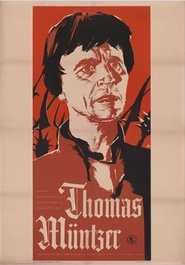 In 1523 young Thomas Mntzer arrives with...
In 1523 young Thomas Mntzer arrives with...Thomas Müntzer 1956
In 1523, young Thomas Müntzer arrives with his wife Ottilie in the Thuringian village Allstedt to assume the rectorate. As a follower of Luther′s teachings, he finds in the Bible not only reasons for clerical, but also for secular reforms. But when Luther turns away from the rural population after a discord with Müntzer, it is Müntzer who becomes the peoples′ spokesman. He is forced to go to Southern Germany, where he convenes with revolting farmers. But his way leads him back to Thuringia. In 1525, he and Heinrich Pfeiffer form the centre of the Thuringian peasant uprising in Mühlhausen, but their success is diminished by the fact that peasants and craftsmen don′t seem to be able to work together. In Frankenhausen, Müntzer becomes the leader of a peasants′ army that is set to fighting the ruler′s army – and sustains a devastating loss. Müntzer is arrested and sentenced to death by decapitation for his insurgency.
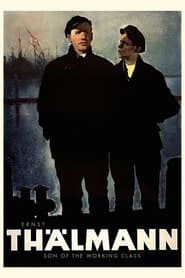 This film is the first of...
This film is the first of...Ernst Thälmann – Son of the Working Class 1954
This film is the first of a two-part historical and biographical portrait of the communist politician and anti-fascist Ernst Thälmann. In early November 1918, Ernst Thälmann is an unwilling soldier serving on the western front. As the revolutionary movement at home is threatened by the betrayal of the Social Democrats and fissures in the working class, Thälmann calls on his fellow soldiers to put down their weapons and unite with the workers in the communist struggle at home. Thälmann’s qualms about which side he is fighting on continue, but when the local police attempt to prevent a shipment of provisions and supplies from reaching the people in Petrograd, he intervenes and the ship is unloaded. With this moment of clarity, Thälmann continues to follow his political convictions and joins the workers at the Hamburg uprising in October 1923.
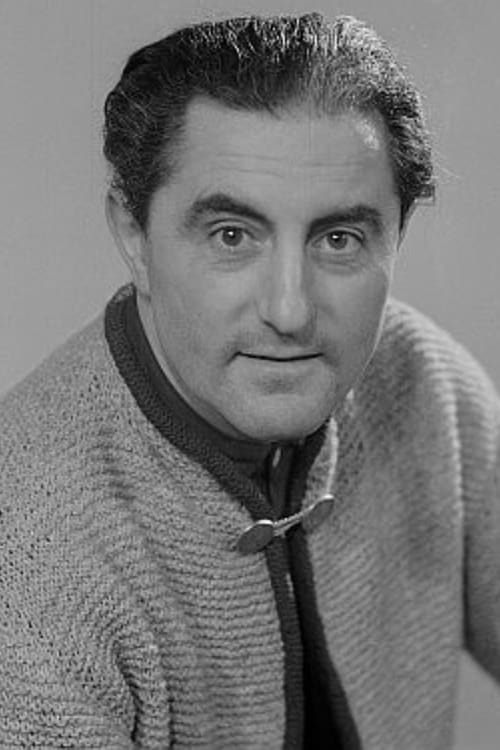

 A man is wrongfully imprisoned for...
A man is wrongfully imprisoned for...
 Two 17yearolds Werner Holt and Gilbert...
Two 17yearolds Werner Holt and Gilbert...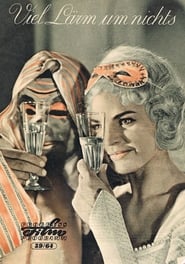 Young lovers Hero and Claudio soon...
Young lovers Hero and Claudio soon...